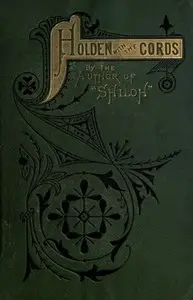"A Mortal Antipathy" by Oliver Wendell Holmes is a book exploring the strange concept of deep-seated personal dislike, focusing on the reactions it causes in people. The story introduces us to Arrowhead Village, a place filled with interesting people, including Lurida Vincent, a smart but not-so-athletic women's rights supporter, and Euthymia Tower, a strong and skilled young woman leading a rowing team. The story also features the mysterious Maurice Kirkwood, a loner known for a strange “antipathy.” All of this sets the scene for a story that questions what we believe to be the norm, looking into themes of character contrasts, gender roles, and a thrilling boat race between the male and female teams which adds excitement to the personal stories and social opinions shared in the book. It’s a setup that hints at a closer look at who people are, what society expects, and how people connect with each other as the story continues.

A Mortal Antipathy
By Oliver Wendell Holmes
In a village filled with curious characters, a mysterious antipathy surfaces to challenge beliefs about identity, social norms, and relationships, all against the backdrop of a heated boat race.
Summary
About the AuthorOliver Wendell Holmes Sr. was an American physician, poet, and polymath based in Boston. Grouped among the fireside poets, he was acclaimed by his peers as one of the best writers of the day. His most famous prose works are the "Breakfast-Table" series, which began with The Autocrat of the Breakfast-Table (1858). He was also an important medical reformer. In addition to his work as an author and poet, Holmes also served as a physician, professor, lecturer, inventor, and, although he never practiced it, he received formal training in law.
Oliver Wendell Holmes Sr. was an American physician, poet, and polymath based in Boston. Grouped among the fireside poets, he was acclaimed by his peers as one of the best writers of the day. His most famous prose works are the "Breakfast-Table" series, which began with The Autocrat of the Breakfast-Table (1858). He was also an important medical reformer. In addition to his work as an author and poet, Holmes also served as a physician, professor, lecturer, inventor, and, although he never practiced it, he received formal training in law.



















